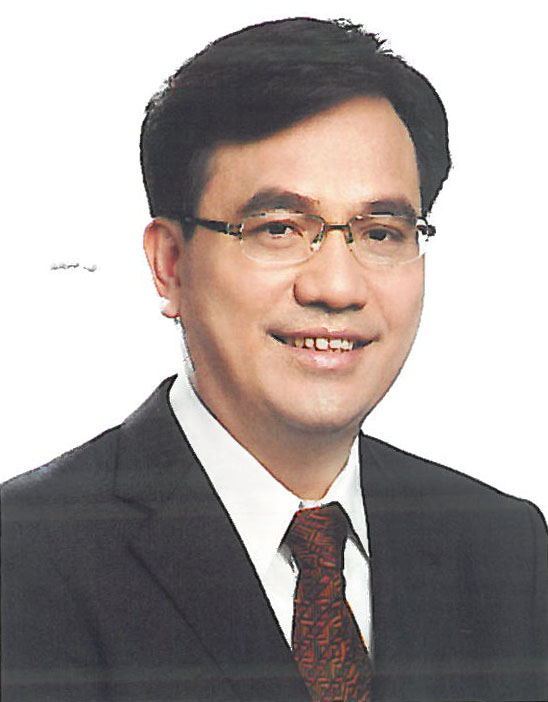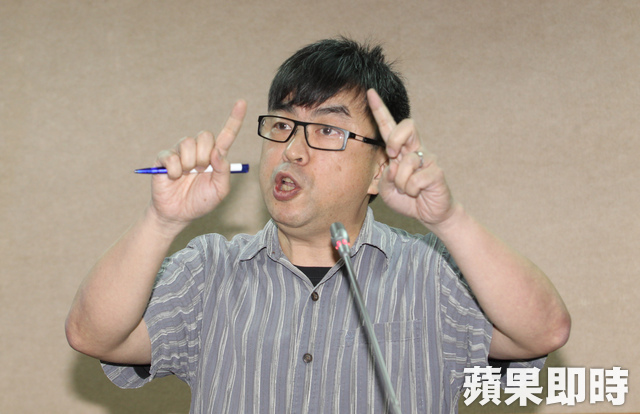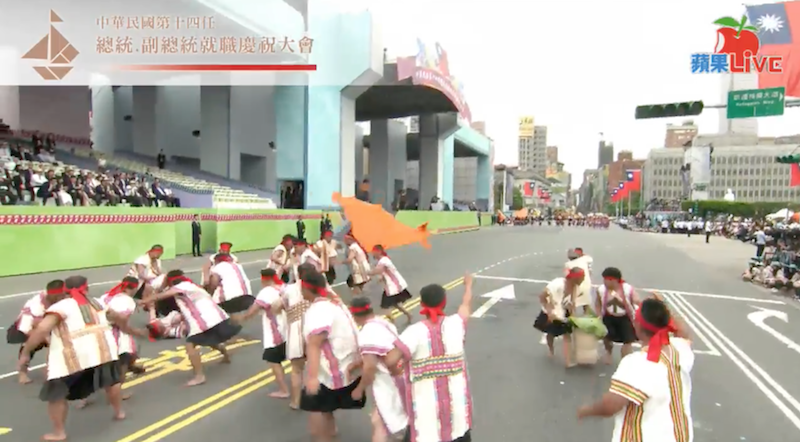by Brian Hioe
語言:
English
Photo credit: Presidential Office
WITH EFFORTS by the KMT to stall on the matter of transitional justice in Taiwan, the issue of transitional justice for Taiwanese indigenous is becoming an embattled one, with controversy regarding the DPP seeking to leave transitional justice for Taiwanese indigenous out of the scope of legislation aimed at transitional justice.
This is justified on the basis of that pushing for transitional justice for Taiwanese indigenous within the scope of present legislation regarding the history of the White Terror would be too complicated legally, given the size of indigenous land claims. Or through arguments excluding indigenous from the scope of transitional justice altogether by claiming indigenous issues to not be related to “transitional justice”, but rather “historical justice”. Legislation concerning justice for indigenous would eventually be put on hold by the DPP altogether, with the DPP passing a motion to adjourn the Judiciary and Organic Laws and Statutes Committee early in order to prevent discussion of legislation concerning justice for indigenous.
As the KMT seeks to defend itself from having to answer for past crimes during the authoritarian period through stalling on the issue of transitional justice, the KMT has displayed some rather stunning displays of Han chauvinism. Icyang Parod of the DPP, current minister of the Council of Indigenous Peoples, was told to his face by Chen Chao-ming that Chen felt his name brought to mind chucao, the Chinese interpretation of a word common to indigenous languages referring to the practice of headhunting.
 Icyang Parod. Photo credit: New Taipei City Government
Icyang Parod. Photo credit: New Taipei City Government
Notably, for the KMT’s China-oriented worldview, indigenous have always been excluded on the basis of not being Han, the KMT adhering to a definition of the nation founded upon Han nationalism. So, the Han-centrism of the KMT is not exactly surprising, if sometimes shocking in how direct it can be. If deep Blue ideology is condescending of benshengren Taiwanese as small-minded provincials that are insular in their focus on their tiny island-province, versus a claimed orientation towards the broader cosmopolitanism of greater China, the KMT is at times particularly condescending towards indigenous, as a barbaric peoples that somehow came attached with the island-province of Taiwan when they were forced to flee to it—and, if members of the KMT already view benshengren as small-minded and provincial, indigenous aren’t even Han.
Yet when the DPP sidesteps addressing indigenous issues, or by excluding indigenous issues from the definition transitional justice by claiming that this would make the scope of transitional justice too large or does not fit under the rubric of transitional justice, this belies another form of Han-centrism. Given the uphill struggle to push for transitional justice in the face of resistance by the KMT, probably the DPP views it as too difficult to push for transitional justice for indigenous.
In particular, the KMT has attempted to use the possibility of indigenous issues being included in transitional justice legislation as a way to shoot down transitional justice legislation. This has taken place through the KMT claiming that the inclusion of crimes against indigenous going back hundreds of years in transitional justice legislation indicates the lack of realism in transitional justice legislation overall, and that the DPP is simply using transitional justice as an excuse to pursue political vendettas against the KMT.
 Tuan Yi-kang. Photo credit: Apple Daily
Tuan Yi-kang. Photo credit: Apple Daily
Nevertheless, putting aside the issue may indicate that the issue simply will be never truly be addressed by the DPP. DPP legislator Tuan Yi-kang, for example, would state that “These are different issues from different time periods for different people for different reasons, so you should carefully separate and address them with separate laws.” But is this not so different from the KMT’s logic, that the crimes of the past are long past, and so they do not have to be addressed in the present? This also would deny the equality of all people before the law, suggesting that different ethnicities should be treated differently.
Likewise, the framework of transitional justice has been one used by governments to address indigenous issues in other countries, Canada being a particularly noteworthy example. This should not be surprising. Namely, if transitional justice is used as a framework to remedy the historical trauma of countries which have seen ethnic cleansing and mass human rights abuses, it is the case that indigenous the world over have been victims of ethnic cleansing, forced relocation, and mass human rights abuses. This, too, is the case with Taiwan. Thus, it is not outside the purview of transitional justice to address past crimes against indigenous, as some would claim, and one can point to examples in which indigenous issues have been addressed through the framework of transitional justice.
Namely, like the KMT, the DPP too has a history of Han-centrism. In the services of Taiwanese nationalism against the Chinese nationalism of the KMT, the pan-Green camp has raised that most ethnic Taiwanese benshengren usually have some part indigenous descent. Though this may be a true fact, when this fact is raised, this is actually in order to subsume indigenous into a Taiwanese Han nationalism, rather the Chinese Han nationalism of the KMT.
 Depictions of indigenous being driven away by Han settlers in the performance which preceded Tsai’s inauguration. Photo credit: Presidential Office
Depictions of indigenous being driven away by Han settlers in the performance which preceded Tsai’s inauguration. Photo credit: Presidential Office
Indeed, if Tsai’s inauguration ceremony included an indigenous children’s choir singing the national anthem as a subversive act against the KMT’s China-centered nationalism enshrined in political ceremonies of the ROC, is this just more of the same? After all, if Tsai has vowed to formally apologize to indigenous peoples and to set up a truth and reconciliation committee for indigenous, her inauguration ceremony also referred to indigenous as having “primitive and uncultivated customs” which were civilized through contact with western missionaries. Often, this is the use of indigenous in the services of what is still a form of Han nationalism, lip service, or simply tokenism.
Transitional justice, then, would prove an early test for the DPP’s earnestness in government. And this will be a central test of the DPP’s sincerity on many matters.

